Despite the Narendra Modi government’s foreign policy hyper-activism, Africa has remained a neglected continent for India. When the India-Africa Forum Summit (IAFS), originally scheduled for December 2014 in New Delhi, was postponed ostensibly on account of the deadly Ebola crisis sweeping West Africa, this perception was confirmed for many Africa-watchers. However, the (rescheduled) third IAFS held last week in New Delhi has somewhat dissipated this assessment.
With over 40 African heads of governments and states attending, the third IAFS has been the biggest foreign policy event hosted by India in more than three decades. While this event was partly in response to initiatives by other emerging powers, particularly the Forum on China-Africa Cooperation launched in 2000, it was also a belated recognition that Africa is becoming an indispensable continent for India’s future—a fact that New Delhi can ignore only to its own detriment.
Today, there are four major issues that unite India and Africa’s economic, political, and security futures and create a unique relationship between the two: The first is the common historical experience of colonization and decolonization. Most African nations and different parts of India suffered under the yoke of many of the same colonial powers. In the process of fighting for independence India and most of Africa developed a common narrative and set of political norms that stressed sovereignty, territorial integrity, constitutional structures, non-intervention, and a desire for an independent foreign policy. Perhaps that is why every newly independent African state became a member and actively participated in the Non-Aligned Movement (NAM)—of which India was a founding and leading member. NAM provided a sense of solidarity and belonging to the newly independent African states and was the first effort at South-South cooperation. NAM was equally important for India and the majority of African nations determined to pursue an independent foreign policy, especially against the backdrop of the bipolar Cold War world. Today, all African nations (apart from newly created South Sudan) remain NAM members.
In recent times India has sought to reinforce its soft power approach in Africa through the over two million strong Indian diaspora there. This approach, though, is likely to have limited impact given that the “identity” issue of the Indian diaspora in Africa is more complex than that in other regions of the world. Having settled in Africa for generations, Indian diaspora relate more to their “African” identity than their “Indian” identity. This is bound to complicate Indian efforts to propagate diaspora diplomacy in Africa, as the lure of the motherland is not as strong as in other countries with large populations of Indian origin.
Second, following India’s economic liberalization from 1991 onwards, Africa has emerged and is likely to remain both a crucial source for natural resources and for developing new markets. Similarly, India has emerged as a key market not only for Africa’s abundant raw materials but also as a source of investment, technology, and capital goods. This trend is evident in growing trade relationship between India and Africa, which in the past five years has grown sixfold to nearly $70 billion. India is now Africa’s fourth-largest trading partner, though raw materials still make up over 80 percent of Africa’s exports to India. In fact, crude oil and gas has emerged as Africa’s leading export to India, accounting for nearly two-thirds of all exports. Clearly, Africa’s oil and gas provides energy-starved India with new sources of import, but also allows it to diversify its supply away from the Middle East stranglehold. Similarly, the nascent African oil and gas industry can in turn diversify its markets.
This exponential increase in India-Africa trade has also been a principal driver behind India’s evolving concept of development partnership cooperation and is the key approach for engagement with Africa since 2003. Africa’s importance in the Indian development cooperation strategy is evident in the promise of lines of credit (LOCs) worth over $8 billion made to African countries between 2008 and 2011 (of which $2 billion has been disbursed already). At the recently concluded third IAFS, India announced an additional $10 billion worth of concessional credit. The LOCs have financed a wide range of projects in agriculture, irrigation, food processing, rural electrification, information technology, and infrastructure projects like railways, cement, and power. The credit lines are extended through the Export and Import Bank of India (EXIM), 50 percent of its lending has gone to sub-Saharan Africa and over 40 African countries have availed it. African countries currently constitute a prominent position in Indian development cooperation efforts, receiving about 53 percent of the operative LOCs. It is true that in absolute numbers, Indian development assistance is not commensurate with other actors in Africa, such as China and the United States. However, India is promoting the concept that its development cooperation is based on a partnership of mutual benefit and therefore is closely tied to commercial interests in trade and investment. India’s development cooperation is theoretically demand-driven, which would make it more egalitarian and less exploitive in nature. While this concept has still to be put into wide practice, the value of India’s development cooperation in strengthening relations with Africa will grow in significance.
Third, Africa remains vital for India’s emergence as a global actor in the international institutional arena. Both India and Africa are keen to reform the existing global governance structures, especially the U.N. Security Council (UNSC), and shape the emerging global regimes particularly those related to food, energy, climate, water, cyber security, and use of outer space for development purposes. Despite their general agreement, there is a major challenge: Importantly, neither India nor African nations have the capacity to shape these regimes on their own; they will have to work together. However, on many issues, such as climate change, the details of UNSC reform, and U.N. peacekeeping efforts, there are significant differences.
In case of UNSC reforms, for instance, the Ezulwini consensus adopted by African nations at the prodding of China effectively preserves the status quo and benefits only the existing five permanent members of the UNSC rather than either India or Africa’s interests.
Similarly, while India considers its peacekeeping role, particularly in Africa, a singular contribution to the continent and the U.N., not all African nations have a similar positive outlook. In some instances, alleged sexual and financial misconduct by Indian peacekeepers have marred India’s credentials. Moreover, despite India’s flattering self-image of its U.N. peacekeeping role, New Delhi’s has not been very successful in converting its peacekeeping efforts into political support, for instance, for reform of the UNSC. For any agreement on this important issue, it is imperative that India and Africa have a sustained dialogue beyond the “gold versus blood” debate (between countries that mandate and fund peacekeeping operations (the five permanent U.N. Security Council members and large donors, such as Japan and Germany) and the biggest troop contributing countries (such as India, Pakistan, and Bangladesh whose personnel actually carry out the operations in the field) that has stymied U.N. peacekeeping.
Finally, terrorism and organized crime (including piracy) are of increasing concern to both India and Africa: There are security threats emerging from Africa that not only impact the African nations but also have a strong bearing on India. International terrorism has been on the rise in Africa in recent years, extending from Nigeria in West Africa to Somalia in the Horn of Africa. Reports also claim that terrorist groups with linkages in Afghanistan, Pakistan, and Iraq have been using Africa as recruiting grounds for jihad. While India is not directly affected by the localized terrorist organizations in Africa, the troubling links between Somali and other groups—such as the al-Qaida affiliated al-Shabab—and militant groups in the Afghanistan and Pakistan region could significantly threaten India’s future security.
These four areas of common interest notwithstanding, the prospects and pace of closer cooperation is likely to be stymied by the lack of capacity on both sides, particularly at the official level, to sustain bold foreign policy initiatives. For instance, over two dozen Indian embassies in Africa are missing ambassadors/high commissioners. While political initiatives by strong leaders make for good headlines, their implementation is dependent on the ability of official institutions to sustain them.
Consequently, although the IAFS process is crucial to sustaining the complex and multifaceted India-Africa bonds, this process alone may not be enough to strengthen the burgeoning relationship. That may require multiple and more frequent processes of engagement, involving not only government-to-government interaction but also the private sector, state governments, and civil society. Only then will India and Africa become indispensable partners.
Editor’s note:
This year’s India Africa Forum Summit presented a pivotal opportunity to engage in dialogue on solidifying and expanding upon this growth. For more information and policy recommendations, see the Brookings India publication “India and Africa: Forging a Strategic Partnership.“
The Brookings Institution is committed to quality, independence, and impact.
We are supported by a diverse array of funders. In line with our values and policies, each Brookings publication represents the sole views of its author(s).


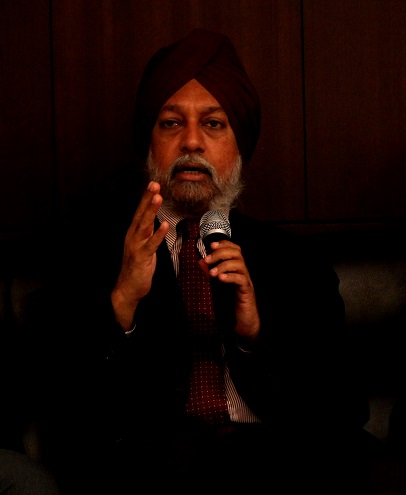
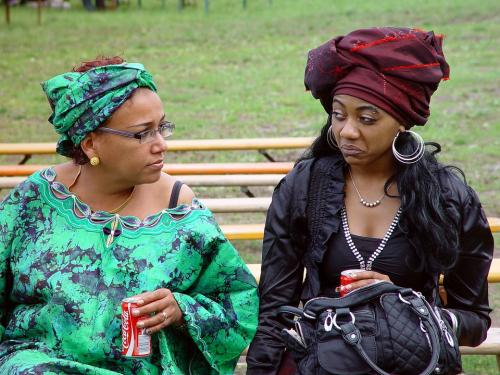
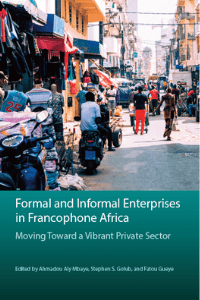
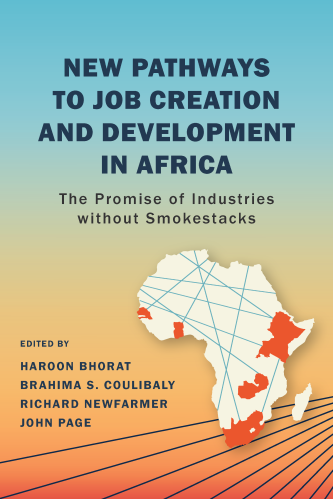
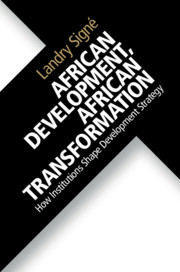


Commentary
Africa: The indispensable continent for India?
November 3, 2015